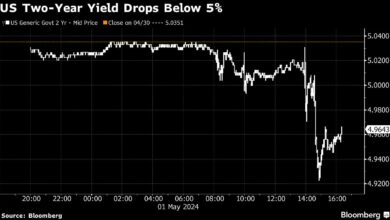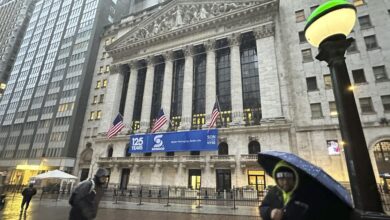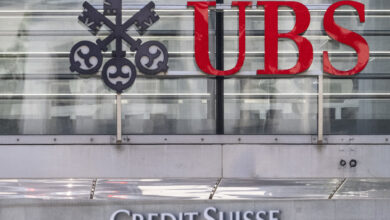Stock market today: World shares are mostly lower ahead of a key US inflation report
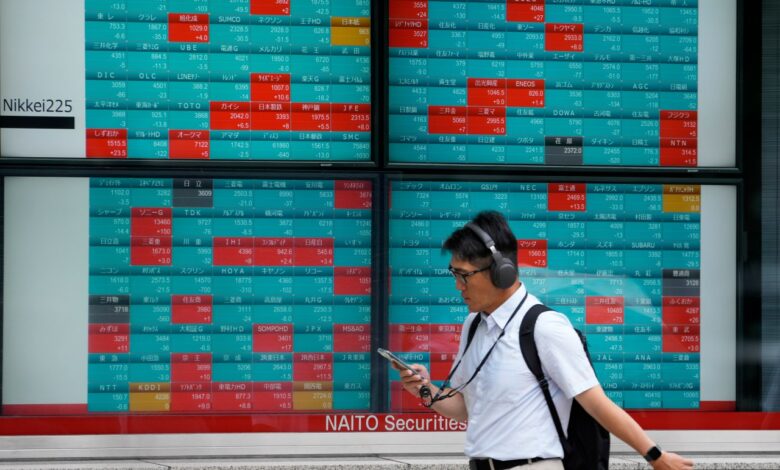
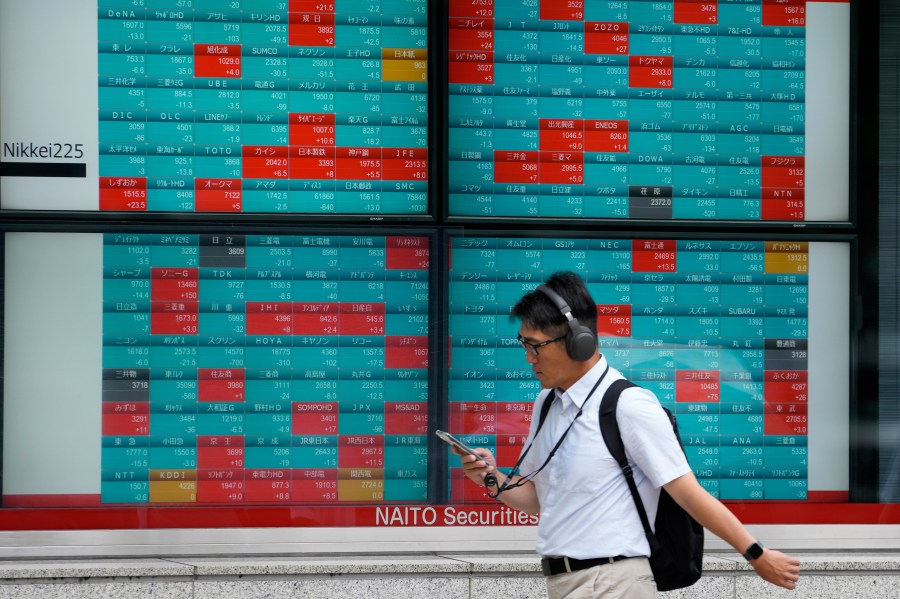
A person walks past at an electronic stock board showing Japan’s stock prices at a securities firm Thursday, June 27, 2024 in Tokyo. (AP Photo/Shuji Kajiyama)
BANGKOK (AP) — Shares fell Thursday in most world markets ahead of a key U.S. inflation report due Friday that might point the way ahead for interest rates.
Hong Kong led the decline, falling more than 2%. U.S. futures also fell, while oil prices rebounded.
In early European trading, the CAC 40 in Paris fell 0.2% to 7,593.97 and the FTSE 100 in London lost 0.1%, to 8,215.80.
Germany’s DAX was the only outlier, edging up less than 0.1% to 18,162.74.
The futures for the S&P 500 and for the Dow Jones Industrial Average were both 0.2% lower.
The markets’ big focus this week is on a U.S. government inflation report due Friday. The personal consumption expenditures index, or PCE, is the Federal Reserve’s preferred measure of inflation, and analysts said investors were in a wait-and-see posture after recent mixed data.
The latest updates on inflation could influence the central bank’s decision on when to begin cutting interest rates, which remain at their highest level in more than 20 years and which are having an impact worldwide.
In Asian trading, another set of measures to boost the Chinese property market failed to lift market sentiment. Hong Kong’s Hang Seng fell 2.1% to 17,716.47, while the Shanghai composite index was down 0.9% at 2,945.85.
Beijing became the latest city to cut minimum down-payment ratios and mortgage interest rates, beginning Thursday, to help the property sector.
Other Chinese cities have taken similar measures in line with national policies aimed at enticing buyers back into a market that has languished since the government cracked down on excessive borrowing by developers. That caused dozens of such companies to default on their debts and the downturn has dragged on the entire economy, the world’s second largest.
In Tokyo, the Nikkei 225 index lost 0.8% to 39,341.54 amid concern over further weakness in the Japanese yen.
The U.S. dollar was trading at 160.52 yen early Thursday, having punched through the 160 level a day earlier to its lowest level since late 1986. Japanese officials have warned they may intervene in the market to counter the trend, which has both positive and negative effects on the economy.
Elsewhere in Asia, Australia’s S&P/ASX 200 fell 0.3% to 7,759.60. Taiwan’s Taiex lost 0.4% and Bangkok’s SET sank 0.5%. Shares rose in Mumbai, Jakarta and Singapore.
On Wednesday, a mostly subdued day of trading left benchmarks on Wall Street close to all-time highs they set last week.
The S&P 500 index rose 0.2%, though about 65% of the stocks in the benchmark index fell.
The Dow Jones Industrial Average finished less than 0.1% higher, while the Nasdaq composite rose 0.5%.
Several big stocks helped offset the broader decline in the S&P 500.
Amazon.com rose 3.9%, surpassing $2 trillion in market value for the first time. Its rise comes just days after Nvidia hit $3 trillion, briefly becoming the most valuable company on Wall Street.
FedEx helped offset the losses with a gain of 15.5%. The package carrier reported results for its latest quarter that easily beat forecasts. Rivian soared 23.2% after Volkswagen said it would invest up to $5 billion in the struggling maker of electric vehicles.
Apple rose 2% and Microsoft gained 0.3%. Their large values tend to heavily influence the direction of the market.
Investors are hoping that the Federal Reserve will soon begin cutting interest rates but its effort to tame inflation back to its 2% target has been arduous. Wall Street is betting on a rate cut at the central bank’s September meeting.
The economy has remained relatively strong, despite inflation and high borrowing costs for consumers and businesses, but is slowing. Wall Street is hoping that Fed can time its rate cuts so that it relieves pressure on the economy before it slows too much, but doesn’t also fall short of its goal of cooling inflation.
In other dealings, benchmark U.S. crude oil picked up 68 cents to $81.58 per barrel in electronic trading on the New York Mercantile Exchange. Brent crude, the international standard, advanced 72 cents to $85.19 per barrel.
The euro rose to $1.0696 from $1.0681.



